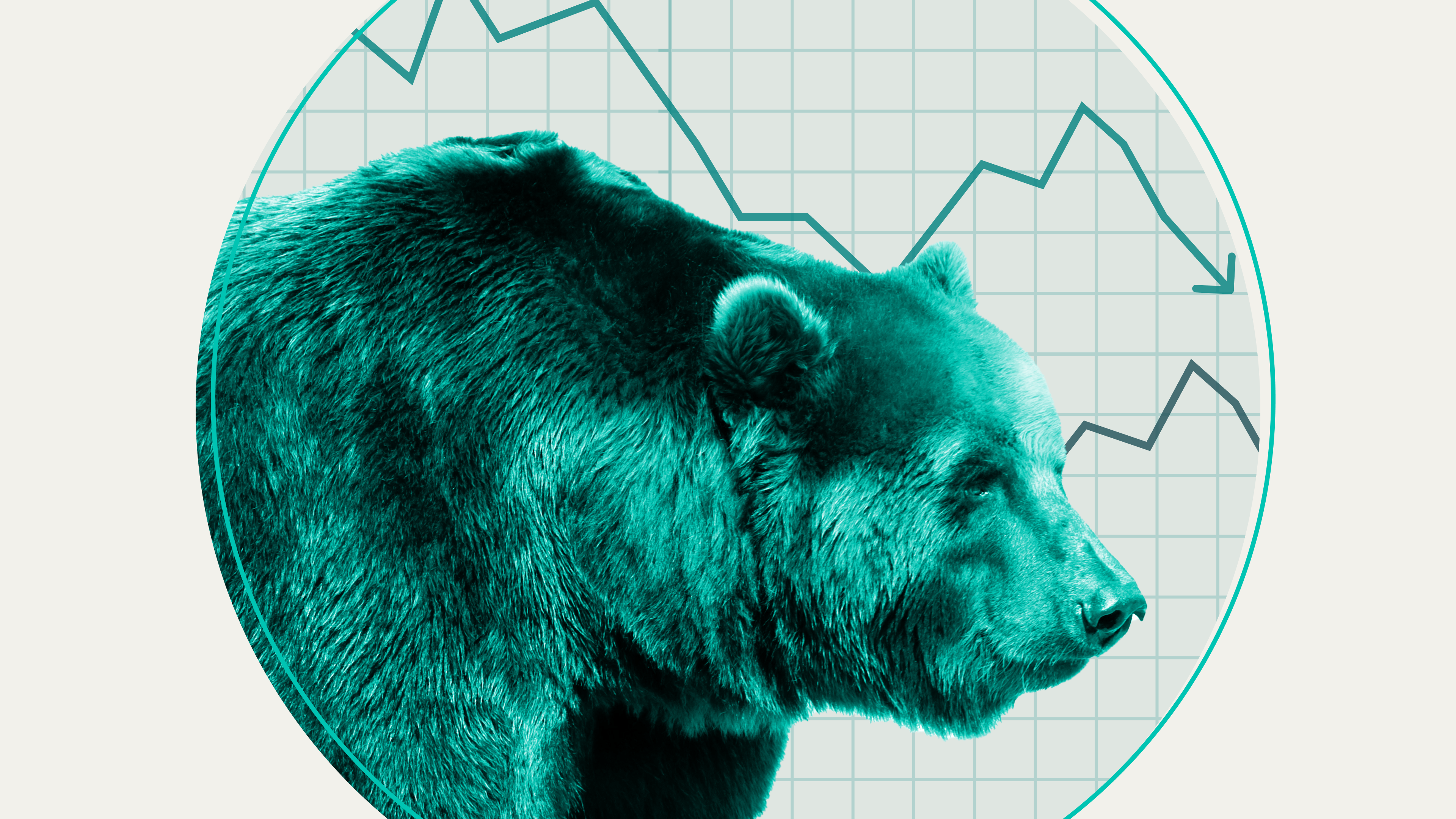What’s a Bear Market? Here’s How it Could Affect Your Wallet

The stock market’s been feeling pretty emotional lately. Thanks, coronavirus, inflation, supply chain issues, and Russia’s invasion of Ukraine.
This perfect storm, coupled with early rumors of the Federal Reserve’s 0.75 point interest rate hike, sent stocks down. And on June 13, the market crossed a line. The S&P 500 (hint: an index that tracks the value of 500 large US companies) fell more than 20% from its recent high in January. And that’s the sign of a bear market. Here’s what it could mean for your wallet.
Is saving for retirement on your mind?
Your 401(k) (and other investment accounts) probably aren’t looking too great right now. Read: in the red. Because many track major indexes like the S&P 500 or include investments in those indexes.
Your move: Take a breath. The good news is that your retirement account will likely bounce back by the time you’re ready to retire.On average, bear markets have lasted about 27 months since World War II. And stocks have come roaring back after each one. So sticking with your long-term strategy and staying invested helps make sure you catch the ride back up.
On the hunt for a new job?
It might get more difficult. Because when the market’s down, people spend less. And in turn, companies spend less. That might mean trimming (or just not adding to) their workforce.
Your move: Staying in your current role a little longer could be smart. And it doesn’t have to mean standing still: here are eight ways to give your career a boost without quitting.
If that’s not an option, getting your job search in motion sooner rather than later (hi, resume refresh) could help you get ahead of any potential downturns.
Want to keep (or start) investing?
Stock market values falling means stocks are on sale. But whether that makes them a good deal depends on the stock. Because it’s just like shopping for anything else — sometimes what’s in the bargain bin is a great find, but sometimes, it’s cheap for a reason.
Your move: Check if you’re ready to ‘buy the dip,’ aka invest when stocks are down. A few good signs: you have a full emergency fund, can stomach some volatility in your portfolio, and won’t need the money you’re investing anytime soon.
Another idea: consider investing in mutual funds vs. individual stocks. Or exchange-traded funds. Both types of funds let you buy a loooooot of different investments all at once for instant diversification.That helps increase your odds of buying cheap stocks that are worth investing in. Psst…here’s how to start investing.
theSkimm
A bear market simply means that the stock market has fallen 20% from its recent high. It doesn’t necessarily = a recession. But it’s not a great sign.So that means you should prep your money (and your mindset) to focus on the long term, from your retirement account to your career.
Subscribe to Skimm Money
Your source for the biggest financial headlines and trends, and how they affect your wallet.
Read Next

Nulastin Founder Leah Garcia on Connecting the Dots on Your Resumé

Trinny Woodall on the Financial Reality of Being Self-Employed

Norma Kamali on What Happens When You Ask For Help

Nili Lotan on Owning Your Voice — and Your Business

Argent Founder Sali Christeson on Reimagining the 9 to 5 Uniform

Cathy Engelbert on Asking for (and Getting) What You Want at Work
Trending
These Adult-Friendly Fidget Toys Helped Me Cut Back on Doom-Scrolling
Here’s What the Youngest Full-Time Equity Trader on Wall Street Wants You to Know About Investing
Games, Toys, and Activities for Those Long Winter Days at Home
Tipping Guidelines From an Etiquette Expert
ReproductiveRights.Gov Vanished, So We Brought It Back
© 2012-2025 Everyday Health, Inc., a Ziff Davis company. All rights reserved. theSkimm is among the federally registered trademarks of Everyday Health, Inc., and may not be used by third parties without explicit permission
This site is protected by reCAPTCHA and the Google Privacy Policy and Terms of Service apply.